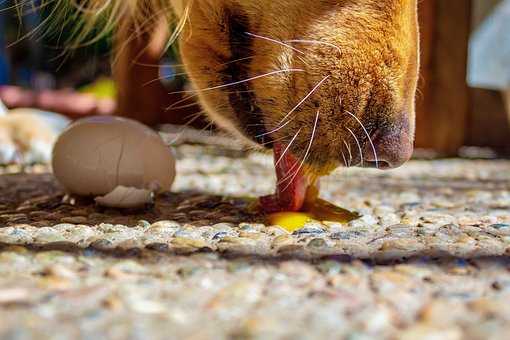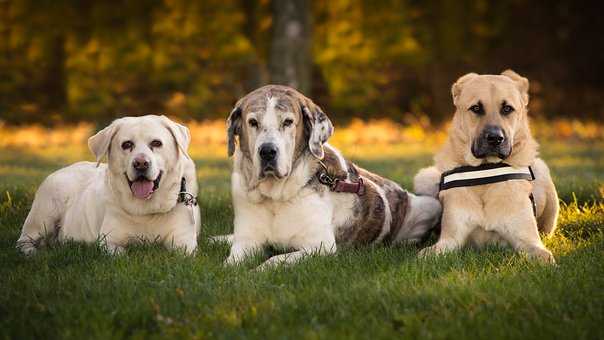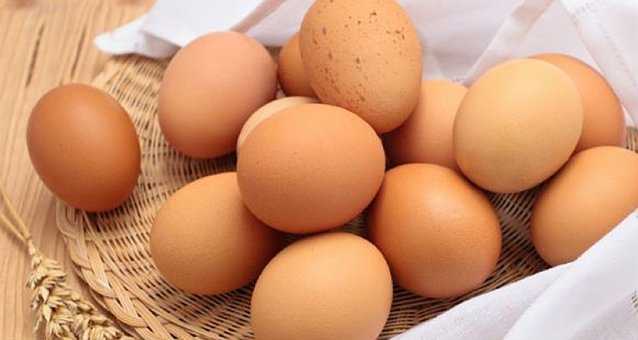
Can Dogs Eat Eggs
Here you will get the information and answer of “can dogs eat eggs” in short, yes dogs can eat eggs.
Egg in a dog’s diet, facts, and myths
Can a dog eat eggs? Many pet owners asks this question. Meanwhile, bird eggs have always been a natural component of this animal’s diet. The egg can be served hard-boiled or soft-boiled. Giving a dog a raw egg will also not hurt him; some dogs like to eat eggs in this form.
Why is it worth including eggs in a dog’s diet?
Feeding your dog eggs several times a week will not negatively affect their health. On the contrary, it can significantly improve them. The only time we should not feed our dog eggs is if our dog suffers from indigestion. Eggs are a symbol of health and life. It is one of the most valuable food products thanks to the high content of nutrients. They contain essential amino acids, vitamins A, B, E, and D3. The list of beneficial ingredients that can be found in an egg is very long. All these ingredients have a positive effect on our health and the health of the dog.
What vitamins can be found in an egg?
The egg is a source of many vitamins. Vitamin A is essential as it influences the dog’s vision process. Vitamin A deficiency may cause problems with our pet’s eyesight, so it is worth caring to provide the dog with this vitamin with food. Including an egg in a dog’s diet is not expensive and can counteract such health problems. Egg also contains vitamin E and vitamin B7, called biotin. Biotin deficiency in the animal’s body can cause growth inhibition, dermatitis, and hair loss. Giving an egg to a dog is an easy way to avoid problems that are causing nutrient deficiencies.
How and when to feed your dog eggs?
- Egg yolk may be in the puppies’ first food while still with their mother but are already starting to eat solid food, many are asking, can puppies eat eggs, yes.
- Dogs growing and having an increased protein requirement in their diet may be given at least one chicken egg a week.
- Adult dogs can eat eggs several times a week.
- Golden eggs are precious to the dog. It is worth giving them, for example,
- every other day.
Soft, hard, raw – dogs can eat eggs in any form. It will not harm them in any way or cause any harm to their health. It can be quite the opposite, and by giving eggs to the dog, we will avoid many problems caused by food shortages in a pet. Including eggs in your dog’s diet will diversify his diet. Eggs are a valuable food product that should be included in our dog’s diet.
Chicken eggs can support our pet’s treatment in the event of cancer, infection, or organ dysfunction. Feeding your dog a few eggs a week is advisable and will positively affect your pet’s appearance and health. Chicken Egg is a natural dog supplement that contains all the essential and valuable amino acids. Every pet owner wants him to live as long as possible. You can easily take care of your dog’s health and condition by including eggs in his diet. It’s a cheap and straightforward way to keep our dog in perfect health for as long as possible.
Like any loving and responsible dog owner, you want to feed your dog in the best possible way. You are wondering what diet will be best for him. What ingredients and in what amounts should be included. Surely you are also wondering what it is like with these eggs. Can dogs eat them, or is it better not to give them to them?
A lot of myths and controversy have arisen around the eggs. Some people argue that a dog’s egg is inadvisable. They see them as unhealthy cholesterol bombs. Can dogs eat eggs is a most asked question now.
Treasures are hidden in the egg.
The egg may seem very inconspicuous. However, it is not so. It is a real treasury of many valuable ingredients. Egg protein is the best protein available in nature. It is also full of vitamins. Including mainly A, B, E, D, and K. Egg also contains many micro and macro elements, including zinc, iron, copper, magnesium, calcium, sodium, and more.
Egg for the dog – a good idea?

Egg for the dog – a good idea?
If the egg is such a valuable source of protein, vitamins, and various ingredients, is it worth including it in your dog’s diet? Yes, of course! Even wolves, the dog’s wild ancestors, have appreciated the eggs’ role in their diets for centuries. These committed carnivores often reach for eggs to enrich and diversify their diet. Others are happy to serve eggs to their dogs. How is it? Can a dog eat an egg?
How often can dogs eat eggs? The dog is not a wolf. However, his diet should also be varied. So that your dog always gets what’s best for him. It’s the same with eggs too. What dogs can eat raw eggs? Are they all? Or maybe it depends on his age? How is it with puppies and fully grown dogs? Find out!
Should puppies eat raw eggs?
Puppy is an amusing and cute creature. Sweet and tiny, it is a source of joy and fun. No wonder we want to give him the best. Adequate feeding is also a manifestation of great love and proper care. But how is it with this feeding? Is an egg for a puppy a good idea, or maybe it is not worth introducing it to the diet of such a young puppy?
The most important thing is moderation. Puppies are small and developing organisms. In the pursuit of giving them the best, it is easy to go overboard. The excess of vitamins is as dangerous and even more dangerous than their deficiency in the diet. An egg as a source of easily digestible protein and a vast vitamin bomb may appear in your puppy’s diet. However, not very often. One yolk a week is fine.
Remember that you can introduce egg yolk into your dog’s diet as soon as he stops sucking his mother. The raw yolk is very valuable for the puppy. Unfortunately, due to the fear of contamination, it is common to cook them. However, if your eggs are from a reliable source, feel free to give them once a week.
Adult dog – should eggs be included in his diet?
An adult dog has completely different requirements than a puppy. This is a fact that cannot be denied. But what does this mean? An adult dog’s food must have completely different proportions of protein, vitamins, and other nutrients, as well as macro- and micronutrients. Adult dogs don’t grow anymore, so they don’t need that much energy to thrive.
However, they still need loads of ingredients to be healthy, energetic and happy. That their bones and joints would not fail, and their hair was healthy, beautiful and shiny.
Eggs everyday are good for dogs? For adult dog, egg is a good idea? Yes! Especially when you prepare his meals yourself – in such a situation an egg can be a great and tasty addition. However, if your dog’s diet is based on good-quality, balanced food, it’s best not to give him anything else – it’s easy to overdo it.
With an adult dog, you don’t have to limit yourself as much as with a puppy. You can give him an egg once or even two or three times a
week. Of course, it all depends on its weight and lifestyle. In working or very active dogs, the egg may be placed in the bowl even every other day. Likewise, you can often give them when you want to improve the condition of the fur’s skin and coat. If in doubt, ask your veterinarian for advice. It is the best way to help you balance your dog’s diet.
How should I feed my dog’s eggs?

How should I feed my dog’s eggs?
You already know that eggs are healthy. You also see how the need for puppy eggs and adult dogs differs, so don’t overdo it in your dog’s diet. However, do you know what form you should serve your dog with eggs? Is a dog’s raw egg a good idea, or is it better to serve it differently?
If you are sure your eggs everyday are from a trusted source, you can serve them raw. However, if in doubt, better cook them – otherwise, there is a risk of salmonella contamination. Hard-boiled or soft-boiled – it doesn’t make much difference. On the other hand, a fried egg is fatty, unhealthy and difficult to digest – so it should not be present in your dog’s diet.
What about egg white and yolk? Can a dog eat both? Yes – but not together. You may have heard of avidin before – in crude protein, it binds biotin (which is in the yolk) and prevents it from being absorbed.
This does not mean, however, that dog protein must necessarily be cooked. You can give your pet the protein and the yolk separately – they will go to the stomach at different times.
Egg for the dog – summary

dog
Eggs should not be demonized. They are very healthy and constitute a natural dietary supplement – not only for humans, but also for dogs. Wolves also take advantage of its benefits, which in this way diversify their menu. Your dog’s egg won’t hurt either. Adult dogs can eat them more often than puppies – two or three times a week.
Puppies should limit this delicacy and give them scrambled eggs only from time to time. You can give your dog both the yolk and the egg white (if you have raw eggs, it’s good to give them separately). Also, be aware of any food allergies and intolerances that may occur after your dog has eaten an egg (as is the case with other products). Observe your pet.
If you have any doubts about whether your dog should be given boil eggs and how much – consult your veterinarian for an expert opinion. Bird eggs have always been an important component of a dog’s diet.
They are considered to be the perfect food offered by nature. Unfortunately, there are many misconceptions about scrambled eggs in a dog’s diet. Therefore, one of the most frequently asked questions is: “can dogs eat eggs?” Yes. Plus, they can be served in a variety of ways – hard-boiled, soft-boiled, or raw – some dogs like them very much. Egg opponents claim that they are a source of cholesterol and cause a vitaminosis.
Proponents believe eggs are a vitamin and nutritional bomb – one of the most complete and nutritious meals you can give your pet. Giving a medium-sized dog a few eggs a week will not harm his health – quite the contrary. If we do not notice indigestion symptoms in a pet, we can include eggs in his diet without fear.
WHAT’S REALLY IN THE EGG? The egg is a symbol of life – not only because it hatches a new life but also thanks to its versatile properties. Due to the high content of nutrients, scrambled eggs are among the most valuable food products. They are an excellent source of protein with a very high degree of digestibility.
They contain all the essential amino acids and nutrients – vitamins A, B, D 3, and E , and niacin, biotin, copper, iron, sulfur, phosphorus, and unsaturated fatty acids. On the other hand, egg yolk is the richest source of choline, necessary for the emulsification and dispersion of cholesterol in the body. There are three bioactive substances in the egg, utterly different in terms of structure and chemical composition. It comprises 58% protein, 30% yolk, 11% shell, and 1% subcutaneous membranes.
Protein is primarily a source of amino acids, lysozyme and cystatin. The yolk contains, among others, phospholipids, immunoglobulins and phosvitin, while the shell mainly supplies minerals. A standard weight class L chicken egg has an average weight of 56 g and contains about 78 kcal, of which 62% comes from fats, 36% from proteins and 2% from carbohydrates. EGG WHITE IN THE DOG’S DIET An average egg (56 g) has 7 g of protein, most of which is in the protein, less in the yolk.
However, due to the double weight of the protein fraction compared to the yolk fraction, the main source of egg white is the protein fraction. The egg white consists of water (approx. 88%), protein (approx. 11%) and small amounts of carbohydrates and minerals (approx. 1% each). In dogs and other animals, it is the protein of the chicken egg that has the highest biological value. Egg white is easy to digest for both humans and older dogs and is often affected by painful muscle wasting ( sarcopenia ).
Eggs everyday are also one of the complete sources of amino acids, can dogs eat hard boiled eggs, and the answer is Yes, which are the building blocks of proteins. Egg protein has been recognized as an international benchmark in nutritional value in terms of the composition and proportion of essential amino acids it contains (more information in the table below). Egg protein in the dog’s diet also has an antibacterial effect. The presence of lysozyme and avidin and inhibitors of various enzymes are of particular importance for this function. As the main glycoprotein found in the protein part, Avidin is part of the so-called natural protective barrier of the egg content. Dogs can eat raw eggs and don’t worry about it.
It is only 0.05% of the egg white content. It attracted the attention of nutritionists primarily as a compound that binds biotin, necessary for the growth of many microorganisms.
Hence, it is considered a natural antibacterial agent. Avidin is made up of four subunits, each with a single biotin-binding site. This is one reason why caregivers are warned against giving their dogs raw eggs everyday (more on that later in this article).

eggs for dogs
In the egg white, there is also lysozyme, discovered by Alexander Fleming in 1922, which has strong antibacterial properties, protecting the egg against the invasion of microorganisms. Egg protein is a rich and easily accessible source of it.
In hen egg white, lysozyme accounts for 3.5% of its proteins. After isolation from an egg, it retains these valuable properties, hence its great practical importance, especially in food preservation and medicine and veterinary medicine, in the treatment of many diseases of bacterial and viral origin. f you suspect your dog may have heartworms, it is recommended to consult a veterinarian for proper diagnosis and read more on symptoms of heartworm and give proper treatment. Lysozyme is used in medicine as an auxiliary substance in antibiotic and analgesic therapy in the course of bacterial infections and the prevention of leukemia and other neoplastic growths.
EGG YOLK FOR THE DOG Biologically, the yolk is a source of nutrients for the developing embryo. However, when it comes to the use of eggs in dog nutrition, it provides one of the most easily digestible bio-nutrients in nature. The precious egg yolk components include unsaturated fatty acids, lecithin and choline, xanthophylls, vitamins, phosvitin and immunoglobulins.
The yolk consists of 50% by weight of water and 50% of dry matter. The phospholipids found in significant amounts in the yolk have a health-promoting effect on the liver and pancreas. The yolk pigments protect the eyes from UVA radiation and the degeneration of the macula and retina. Chicken egg yolk is a tasty supplement to the daily diet of dogs and cats, it has a positive effect on the condition of the skin and coat as well as the overall condition of the animal’s body.
How should I give my dog an egg?
Like any other food, you can put it in his feeder as a treat or snack. Or you can mix it with your regular food for extra flavor.
If the egg is cooked, just wait for it to cool down a bit to avoid burning. The cooking options would be those already mentioned: French omelet (without salt) or as a boiled egg (without shell), as a poached or fried egg in the microwave (without oil).
Can I give pasteurized egg white?
As long as it is cooked, yes. In addition, it is a very interesting protein contribution since it is considered the protein with the highest existing biological value.
It is a very simple way to reduce the fat of a portion that contains this ingredient and it will also give a lot of play to the cooking of our dog’s daily ration.
Like the whole egg, it can be presented as an omelet with whites in the pan or in the microwave. Of course, it is a product that expires relatively quickly, so we must make sure that we administer it before the date indicated on the package.
Lipids constitute approx. 60% of the dry matter of yolk and 62% triacylglycerols, 33% phospholipids, and cholesterol among them is less than 5%. Raw eggs are rich in fatty acids, especially from the n-3 group, of great importance for the development and maintenance of the good condition of the whole organism. Egg lipids are characterized by a relatively low content of saturated (SFA) and high content of monounsaturated (MUFA) and polyunsaturated (PUFA) fatty acids (see table below for more information). The content and proportions of these acids are important for the proper growth of puppies and the building of their central nervous system.
They are also important in the diet of older and convalescent dogs. These acids play an important role in maintaining normal brain function in aging animals and affect proper vision. It is also worth remembering that acids from the n-6 group determine the proper functioning of cell membranes, and their deficiency manifests itself in dermatological disorders. The basic saturated fatty acids present in scrambled eggs for dogs are palmitic acid and stearic acid. Palmitic acid exhibits hypercholesterolemic effects, while the latter is considered to be biologically inert. The dominant share of unsaturated acids results from the presence of oleic acid (18: 1, n ‑ 9) and the relatively high content of linoleic acid (18: 2, n ‑ 6).
It needs to be highlighted that, that raw eggs are a particularly rich source of polyunsaturated α ‑ linolenic acid (18: 3, n ‑ 3) and its derivative – docosahexaenoic acid (22: 6, n ‑ 3), found in much smaller amounts in other food products. These acids are important in the diet of sled dogs as well as other groups of sports dogs. The main phospholipid in yolk fat is lecithin. It is essential for the smooth functioning of the brain and nervous system. Part of the lecithin in the egg is choline.
Due to its significant biological significance, it is considered a vitamin-like substance. Choline is essential for the regeneration of the liver. Also, it takes part in delaying the aging processes, supports the use of fat-soluble vitamins and improves blood circulation. The positive effect of phospholipids, including lecithin, in degenerative diseases of the liver, heart and blood vessels in dogs was confirmed.
So dogs eat eggs easily and one of the most important issues is the participation of lecithin in the nervous system’s proper functioning. Being a choline source, which is part of the myelin sheaths of nerve fibers, lecithin stimulates the nervous system, enhancing the ability to concentrate and remember.

Thanks for reading